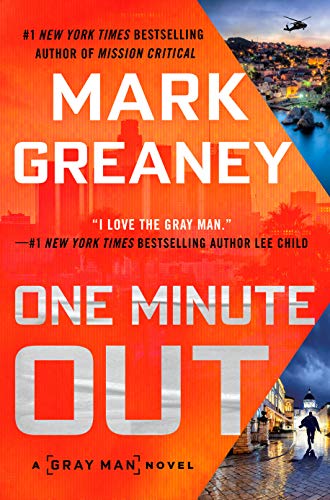
I think a moment about my own actions, then say, “I’ve learned something in my years doing what I do. If you don’t feel guilt, then you can’t change. Guilt can be a driving force for good, for doing what’s right. Or it can be a limiting force. Something that causes you to throw away right and wrong, to justify yourself. That’s the weak way to deal with your conscience. The determining factor in whether guilt locks you into evil or spurs you on towards good is your own inner strength. Your own good moral compass.”
The greatest trope of the thriller genre is perhaps its most improbable – the man of violence who somehow keeps his moral center, who is not corrupted by his bloody work.
No thriller hero exemplifies this principle more than Court Gentry, hero of Mark Greaney’s “Gray Man” series. Court is a former CIA asset, trained and employed for many years as a dark ops assassin. He managed to escape from that life and now operates on his own. Except that he ended up having to call on his old handlers for assistance, and now he owes them favors. So he works for them occasionally again – off the books.
But he has one supreme rule: he only kills bad guys.
It’s a freelance job he’s on as One Minute Out opens. He’s in Croatia, assassinating a former war criminal. Simple job, easy in, easy out. Only he discovers what his target is doing – he’s guarding a group of young women who are being trafficked as sex slaves. He wants to liberate them all, but they refuse. If they run away, their families will be punished, they tell him. And now they themselves will be punished, just because he was here and caused trouble.
Court ought to just go home and forget it, but he can’t. Once he’s seen this evil, he has to do something about it. Along the way he will meet a remarkable woman, sister of one of the captives, on her own crusade against human traffickers. But they have no idea what kind of power and influence they’re up against.
One Minute Out is a fascinating story, but (like most thrillers, but here more than usual) the story suffered (for me) through its sheer improbability. It’s a smart fictional technique to stack the odds against the hero to seemingly impossible heights. But here the challenges pass the limits of the plausible (for this reader). I have limits in my suspension of disbelief, and this book came pretty close to them. Still, I’ll probably read the next one.
For all my quibbles, One Minute Out was a rousing tale, with lots of optimism built in. Cautions for language and disturbing themes.
